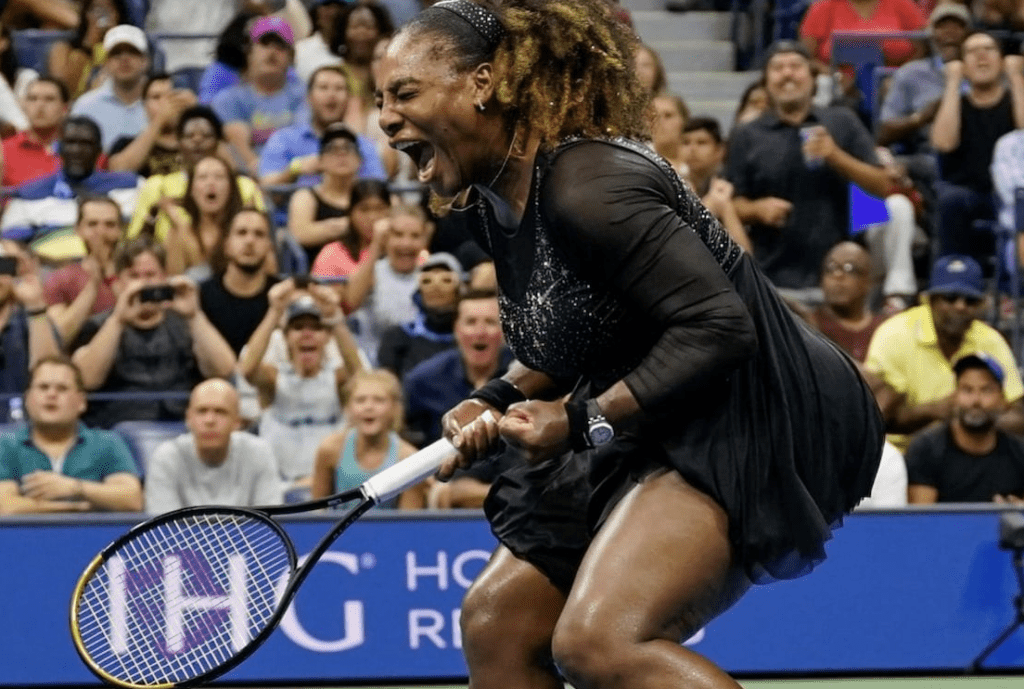
I had been looking forward to watching Serena William’s return to the U.S Open in New York. Her televised appearance was being touted as the likely last contest before her retirement at age 40. A 23-time Grand Slam champion, Serena has changed the game of women’s tennis, while inspiring thousands, if not millions of admiring young women to imitate her determination, strategies, and skills.
As an elder who has loved dancing way longer, but surely at least as much as Serena has loved tennis, I am inspired by her determination to keep doing what she loves. I’m sure we both know that the difficulty of keeping up with our former selves, continually increases as time takes its toll on our aging bodies.
Tough is how we get to triumph, so just because something’s hard doesn’t mean we shouldn’t try it. We often look at highly accomplished people as though they’ve always been that way, a gift from the gods. But to fully appreciate someone’s achievement it’s necessary to appreciate what they went through to accomplish it. Serena and her sister spent most waking hours of their growing up lives on tennis courts. But even with lesser intense practice, we get better week by week by doing something. Reading my husband’s well-written blog yesterday, reminded me of what a not very good writer he was when he took on that challenge several years ago.
When we were raising our three children, my in-laws were working on letting go of their adult children and said often, “Just tell us the good news.” And so, we did. We tried to spare them the details of our daily and monthly parenting struggles. Looking back, not only did we miss their support, but they missed out on the eventual moments of magnificence and the celebrations of the glory that eventually resulted from our hanging in there to the end.
It’s a grief thing–when do we say good-bye and “rest on our laurels” as the expression goes? When do we call it quits, gracefully, going out at the top of our game? Or when should we take a chance, reaching out beyond what has been proven possible by anyone else?
Maybe it matters whether the challenge is one that we choose or one that chooses us. When my daughter was dealing with a challenging cancer diagnosis, she disagreed with a friend’s insistence that this challenge could help her appreciate the gifts she had in her life. “I didn’t need cancer to show me how lucky I was to have the husband and children I have,” she told me one day. “I already knew that.” With the perspective of many years since, I would say to Corinne now that “just like what happened to you – the strength of character I see in your husband and now grown children was honed during those incredibly difficult years.
By the time you read this, you will have a better idea of how these tennis matches are turning out for Serena, and for those of us cheering her on to do well. I watched the first few minutes of the first match, but I surprised myself by not being able to continue watching it to the end. As I watched her flounder and double fault, I decided I’d view the replay later after I knew how it turned out. And of course, she pulled it off eventually and won, without my being there to celebrate with her.
As I thought about it later, the massive introductory hype before the match, including replays of the tennis player she had been, made me too nervous to witness her, and her too nervous to perform well initially. I often remind my students and myself that we must dance (or play tennis) with the body we have today. Not the one we had yesterday, or the one we’re hoping for tomorrow. Since that is the case, as we grow older, major challenges are already built in.

